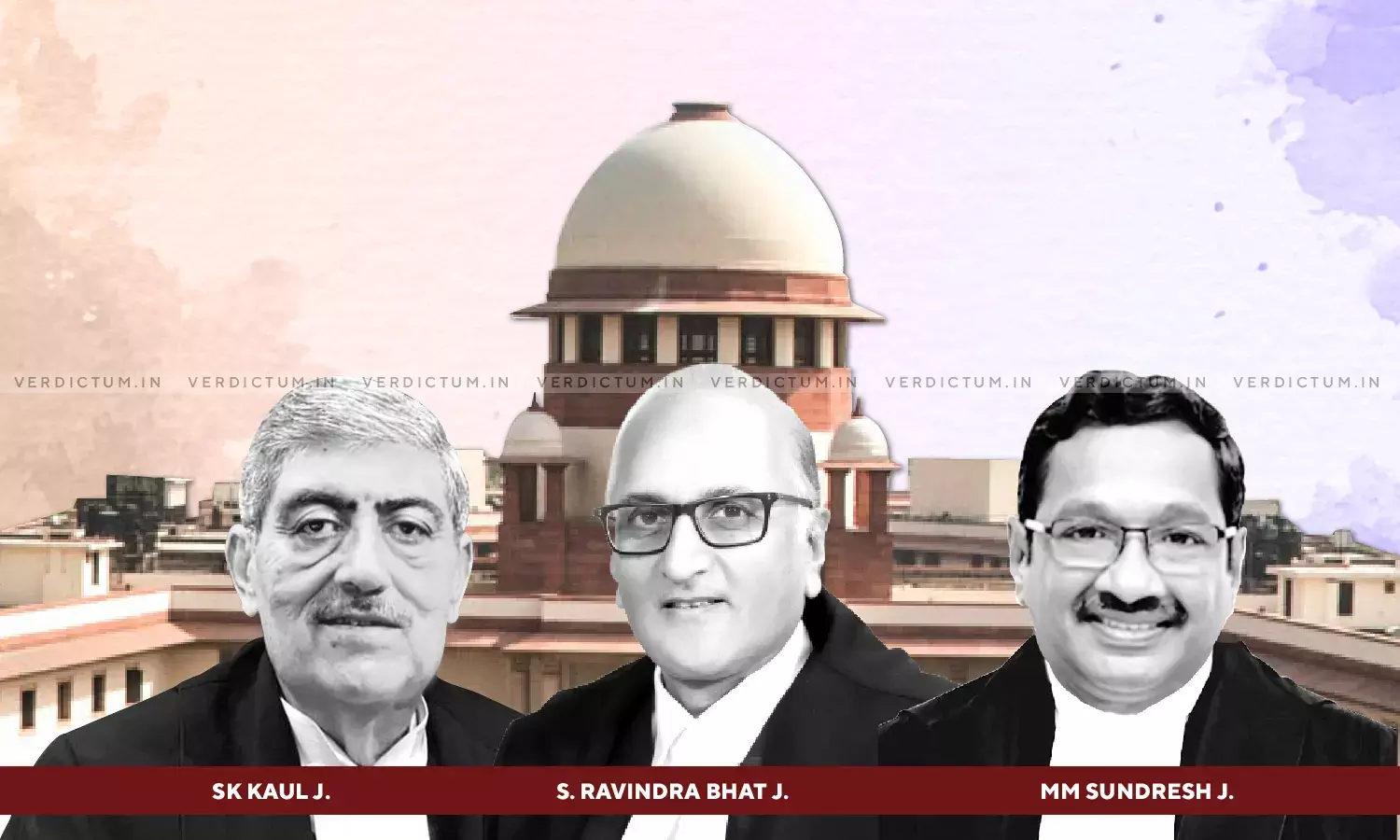Fraud/Material Irregularity & Substantial Injury Must Be Satisfied To Set Aside Auction Sale Under Order XXI Rule 90(3) CPC: SC

The Supreme Court has held that charges of fraud or material irregularity and substantial injury should be specifically made in order to set aside auction sale under Order XXI Rule 90(3) of Civil Procedure Code.
The Bench of Justice Sanjay Kishan Kaul, Justice S. Ravindra Bhat and Justice M.M. Sundresh made this observation while adjudicating upon a dispute about the non-payment of acquired land under the Land Acquisition Act, 1984 which spanned over more than three decades.
In this case, one Ludhiana Improvement Trust (the Trust) had acquired land from its original owners. The compensation determined by the Trust was not acceptable to the land owners. The Land Acquisition Tribunal made an award enhancing the compensation to the owners. However, the trust did not pay the amount while it continued to enjoy the land.
The owners filed an execution application for recovery of the compensation amount, along with interest, seeking to make the recovery through attachment of property.
As there was no response by the Trust to the notice, the attached property, was sold to the Appellant by way of auction.
Thereafter, the Trust filed an application before the Court of the Senior Sub Judge, Ludhiana, seeking to set aside the ex parte attachment and auction of the Trust's property. The Executing Court dismissed the objections and upheld the sale of the land to the Appellant.
The Trust assailed Executing Court's order, but the same came to be rejected. The High Court also dismissed the Revision Petition. When the Trust moved Supreme Court, the Court set aside the impugned orders and the matter was remitted to the Executing Court for deciding the application under Order XXI Rule 90 of the said Code at an early date.
The objections were once again rejected by the Executing Court. The endeavour of the Trust to assail the aforesaid order was rejected by the First Appellate Court confirming the judgment of the Executing Court.
Thereafter that matter went before the High Court. The High Court set aside the judgments of the Executing Court and the First Appellate Court.
The Judgment of the High Court was challenged before the Apex Court.
Senior Advocate PS Patwalia urged that the Appellant was a bona fide successful auction purchaser having purchased the property in a public auction.
It was urged that the Trust as Judgment Debtor could not satisfy the test by merely pointing out material irregularity but had to further establish to the satisfaction of the Court that the material irregularity or fraud has resulted in causing substantial injury to the Judgment Debtor.
It was argued that there was no ground to reverse the concurrent findings of the lower courts especially when the decree holder did not file any objections at the time of presentation of the execution petition or at the time of order of attachment or when the issuance of proclamation under Order XXI Rule 66 of CPC was issued.
On the other hand, Senior Advocate Neeraj Kumar Jain, appearing for the Trust sought to support the impugned judgment on the ground that the High Court had found material irregularities and illegalities causing substantial injury to the Trust.
The Supreme Court observed that both owner and acquiring beneficiary had agreed to the compensation as determined by the Tribunal and that the next step should have been to immediately pay the amount to the owners which did not happen.
The Court further observed thus "We also fail to understand how the dual test of material irregularity of fraud and substantial injury is satisfied in the present case. In fact, neither part of the dual test is satisfied. The Respondent Trust cannot be permitted to say that merely because the property was auctioned there is some substantial injury. No doubt there were some structures shown in the site plan itself, however, they were merely basic structures of a godown and a quarter."
The Court held that "The Executing Court and the First Appellant Court duly supported the reasoning based on various failures of the Judgment Debtor: (a) did not file objections at the time of presentation of execution petition; (b) did not file any objections at the time of order of attachment; (c) no objections filed when proclamation under Order XXI Rule 66 of the said Code was made; (d) no objections filed even at the time of public auction being actually conducted."
Therefore, the Court set aside the judgment of the High Court and imposed costs of Rs. 1 Lakh on the Trust.
Cause Title- M/S. Jagan Singh & Co. v. Ludhiana Improvement Trust & Ors.
Click here to read/download the Judgment

